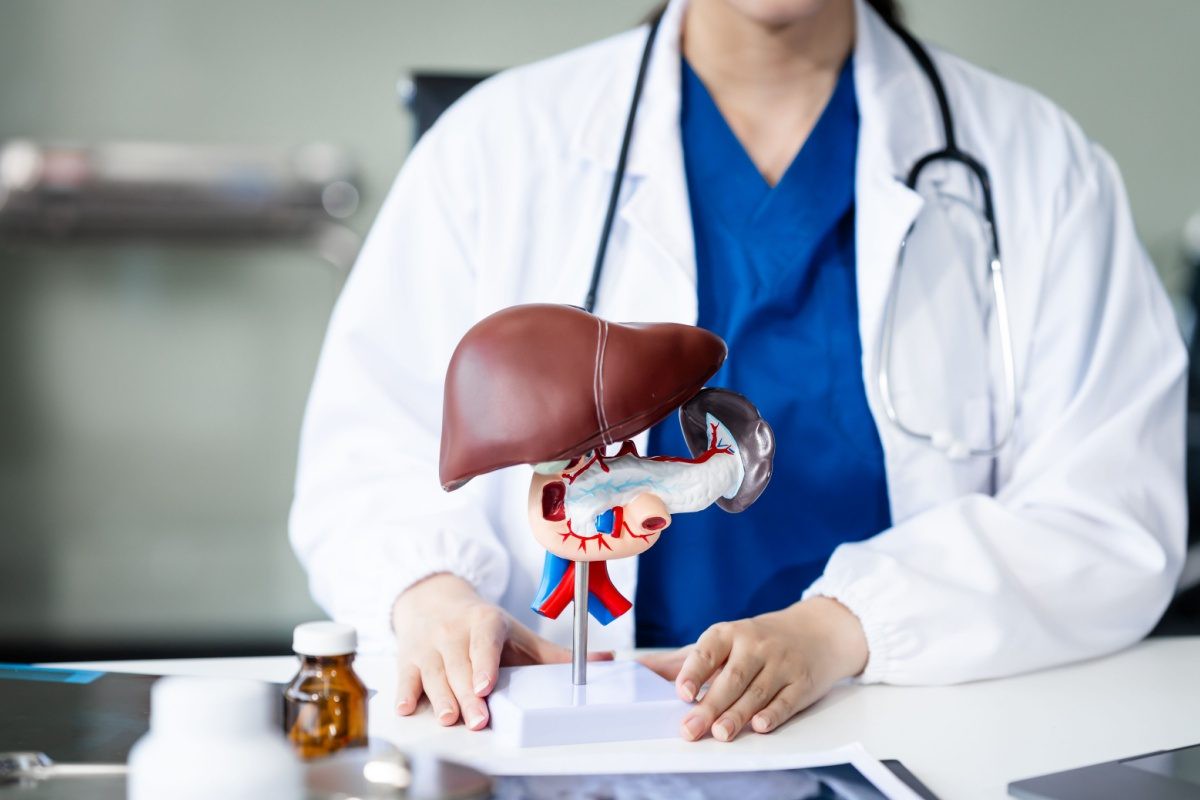The liver is a vital organ, essential for metabolism, immunity and digestion. It produces various proteins and plays a crucial role in detoxification.
Remarkably, the liver has the ability to repair itself, But severe damage, prolonged injury or excessive alcohol and substance use can lead to liver failure and diseases such as cirrhosis and cancer. Genetic factors can also contribute to liver disease. If your parents have liver issues, your risk of developing similar problems may increase.
In the early stages, many liver diseases can develop silently, often without noticeable symptoms. When symptoms do manifest, they typically arise from scarring due to liver damage known as cirrhosis, which can be caused by a range of factors.
If your liver struggles to function properly over time, you may experience symptoms such as:
- Jaundice
Jaundice, or the yellowing of the skin and eyes, is one of the most common signs of a damaged liver. It develops when bilirubin accumulates in the body, which can occur when the liver is injured or overloaded. - Dark urine
Dark urine is another indication of liver damage. When the liver fails to function properly, bilirubin builds up in the blood and is discharged in the urine, making it appear dark or brown in colour. - Sudden weight loss
A sudden drop in body weight should not be welcomed, as it could signal liver damage. Additionally, you might experience frequent nausea or vomiting blood. - Itchy skin
Itching can also be a sign of liver disease and may occur anywhere on the body, but is most common in the arms, legs, hands, and feet. The itching can range from mild to severe and may worsen in heat, at night, or when wearing clothes made of certain materials. - Tiredness
Feeling weak or constantly tired could also be a symptom of liver disease. When the liver isn’t functioning properly, toxins can accumulate in the body, leading to fatigue.
How to keep your liver healthy
- Follow a healthy lifestyle
To maintain a healthy liver, focus on eating well and exercising regularly. Incorporating foods like broccoli, fatty fish, and nuts into your diet can be beneficial. - Maintain a healthy weight
Aim for a Body Mass Index (BMI) between 18 and 25 to support liver health. - Limit alcohol
Moderate your alcohol intake. Studies recommend that women limit themselves to one drink per day and men to two. - Be cautious with medications
Consult a healthcare professional before taking any medications and inform yourself about those that may affect liver function. - Avoid smoking
Smoking can severely impact your liver and increase the risk of liver cancer. If you smoke, seek help to quit as soon as possible. - Seek medical attention
If you experience any concerning or lasting symptoms, don’t hesitate to consult a doctor.
